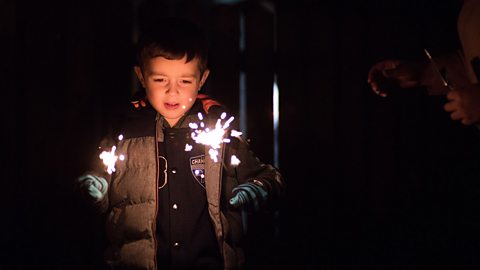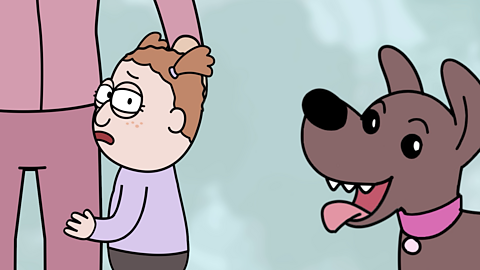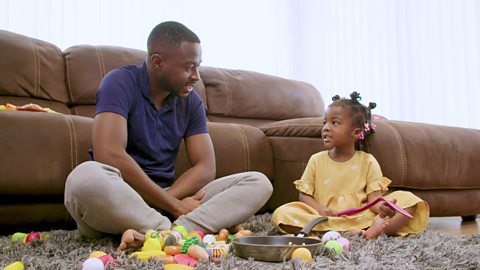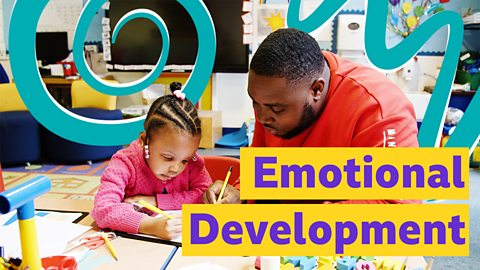Itâs one of the most exciting nights of the year â but Bonfire Night isnât for everyone.
We all know that our furry friends prefer to be indoors to avoid the fireworks, but there are plenty of young children who are put off by the loud noises too.
Itâs a common fear for children, along with things like being scared of the dark, certain animals, or the idea of a monster under the bed.
We spoke to child psychologist Claire Halsey to find out how you can support your little ones when something scares them.

The startle response or reflex
Loud noises, such as fireworks, can be one of the earliest things that frightens a child. Sudden, surprising sounds can startle very young children â but Claire says thatâs completely normal.
She said: âThey are fairly automatic responses. A loud noise or somebody approaching you very quickly can feel like a threat.
âAs children get older, from 18 months or two years, other fears start to arise. Things like Bonfire Night, itâs full of bright lights with noises at any moment. Itâs a startle response that engenders some fear.
âIt can then become a little bit fixed, so a child starts to anticipate noises, which reinforces the anxiety.â
As they get older and their imagination grows, their potential to be afraid of things increases.
A character in a film or even the friendliest monster in a book could induce a worry or a fear within a child.
Keep calm and carry on
Itâs often how a parent or carer reacts to those new fears that can shape the childâs progress with dealing with it.
Claire says that certain worries can be catching â and that could be inadvertently influencing a child.
âIf a parent or carer is quite nervous or anxious about something, that very quickly transmits to a child. If an adult says âOh no, you donât like that, shall we avoid it?â then youâre actually tuning the child into that fear and reinforcing it.
âItâs reminding the child that they are afraid.â
So, if your child tells you they are afraid of something, what is the best thing you can do to support them?
Finding ways to help them to remain calm or to tackle it in stages can be a good way to start.
Claire recommends basic breathing exercises and, if theyâre a little older, to talk to them about it.
âIf you remain very calm and focused when youâre talking about it, you can find out exactly what it is they might be worried about,â she said.
âSometimes it isnât exactly what you might think, so talking about it and using strategies to unpick it can help you really understand what it is thatâs worrying them.
âDonât dismiss it. You can normalise it, acknowledge it and ask them to tell you a bit more about it.â

Donât face your fears
Forcing a child to confront the thing theyâre scared of may well end in more tears but taking a graded approach could help them understand the problem.
With loud noises as an example, Claire recommends starting by playing games where there might be a lot of noises. You could try making animal noises or playing a loud game of peekaboo.
Try pre-empting the sudden sounds by asking them if a noise is coming, make it fun and acknowledge that it was loud.
This can help them to start to build up a tolerance in a gradual way.
Itâs best to avoid telling them that theyâre being brave or courageous, as this may imply to them that it was something to be worried about in the first place.
For similar reasons, if theyâre worried about monsters under the bed, try not to check for them â that can make them think that youâre looking for something that potentially could have been there.
However youâre planning on speaking with your child about their worries, Claire says the most important things are to stay calm and not to put the process off.
âFear can be productive, we have that emotion to keep ourselves safe, but the difference is with fears that are unhelpful and stop a child having a full experience.
âPushing them to face a situation can actually make things a lot worse, so staying calm is really helpful.
âIt can be irritating if the child doesnât want to do something that they need to do but a slow calm approach will help them gradually reduce their anxiety and they will model your behaviour.
âBut donât leave it. In some cases, children will grow out of it, but we do have quite a high rate of childhood anxiety in this country. If you can step in, support your child to tolerate it and even turn it into something they can cope well with, then itâs much more helpful.â






